While charging infrastructure and speed remain bottlenecks for electric vehicles, Mercedes-Benz is taking an unusual approach: putting a lab on wheels. The Mercedes-Benz ELF, short for Experimental-Lade-Fahrzeug, is a mobile testbed developed from the V-Class to test next-generation charging technologies in real-world conditions.
This isn’t your typical commercial vehicle or charging station. ELF’s role is to consolidate, test, and standardize smart, fast charging solutions—from megawatt-level charging and bidirectional charging to wireless charging and autonomous docking robots—before moving them to commercial vehicles and the company’s charging network.
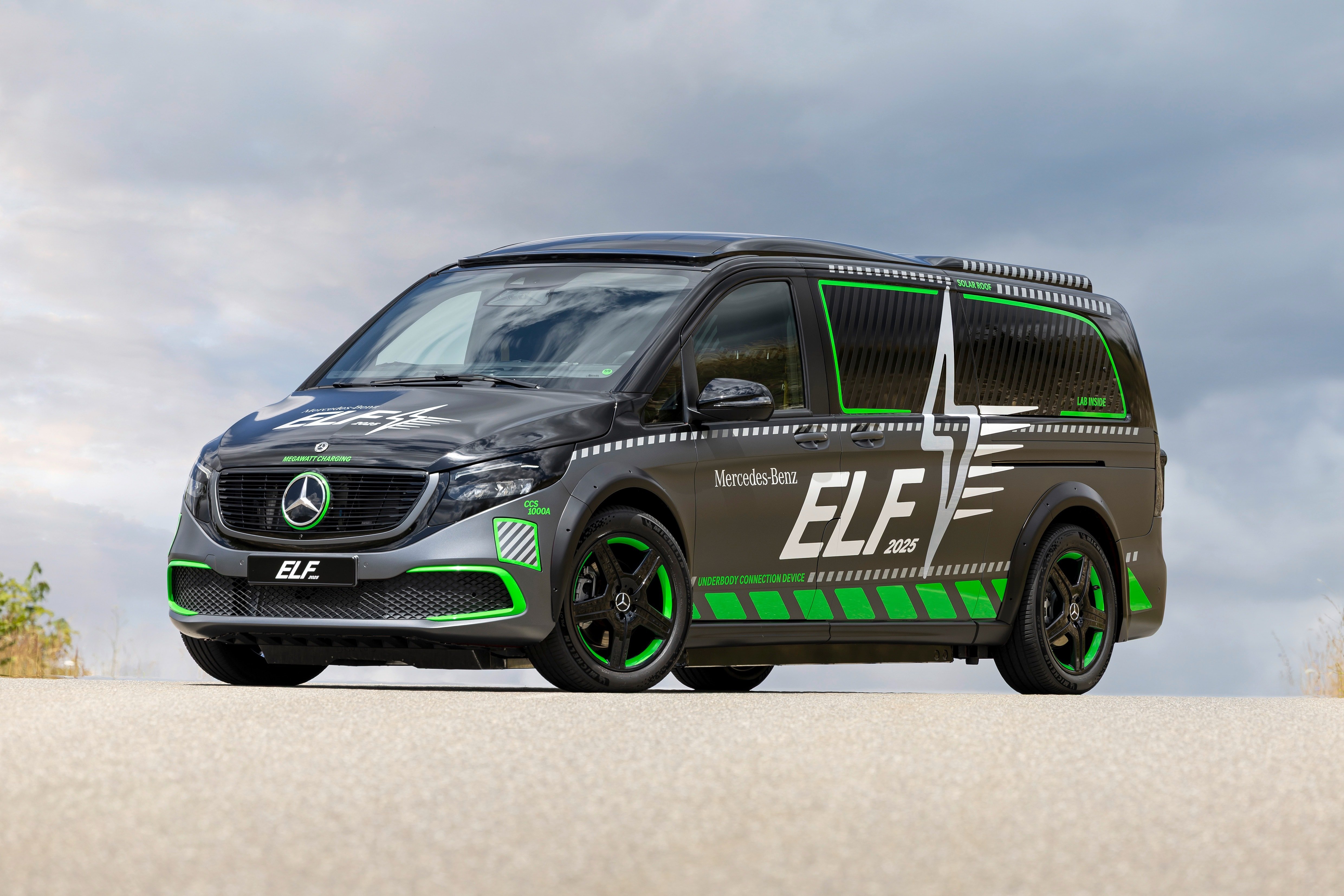
Testbed on wheels for next generation charging
ELF integrates mainstream charging standards simultaneously. The core is the MCS (Megawatt Charging System) designed for heavy-duty trucks, allowing charging at megawatt power levels. In addition, ELF supports CCS (Combined Charging System) with a maximum DC charging capacity of up to 900 kW in testing.
The technical highlight is the ability to transmit up to 1,000 A of current via CCS cables, twice the current standard limit, thanks to a joint development with Alpitronic. Under test conditions, 100 kWh of electricity can be charged in about 10 minutes – a milestone that shows the potential to significantly reduce the charging time of high-performance electric vehicles.
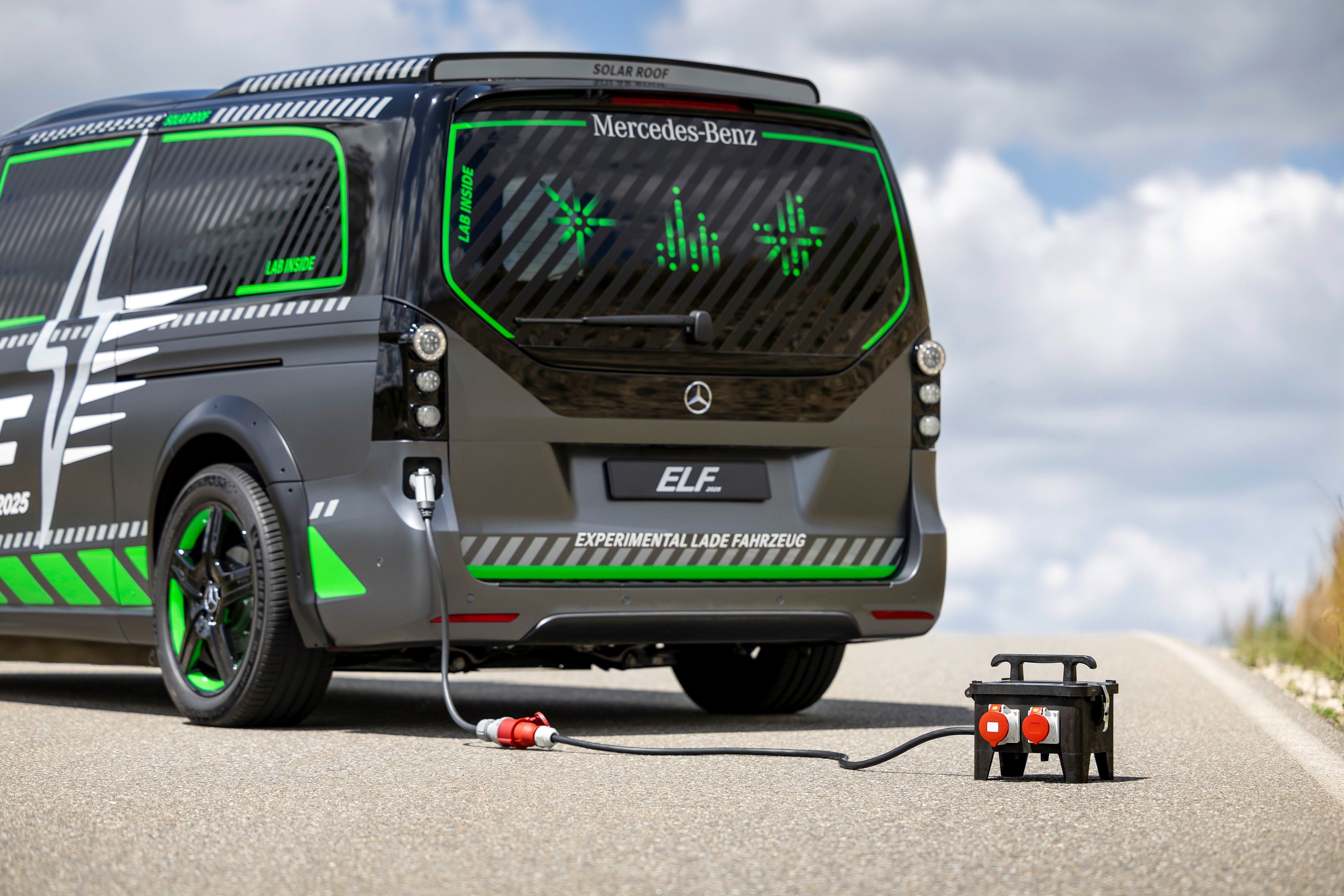
From MPV to dedicated engineering platform
Based on the V-Class, the ELF takes advantage of the flexible space of an MPV to integrate multi-standard charging hardware, test equipment and test interfaces. This approach enables Mercedes-Benz to deploy and compare multiple charging configurations in real-world operating scenarios, from urban roads to highways and fleet rest stops.
ELF also acts as a bridge between R&D and commercial applications. Findings from the test vehicles will be fed directly into the company’s vehicles and charging stations, shortening the technology development cycle.
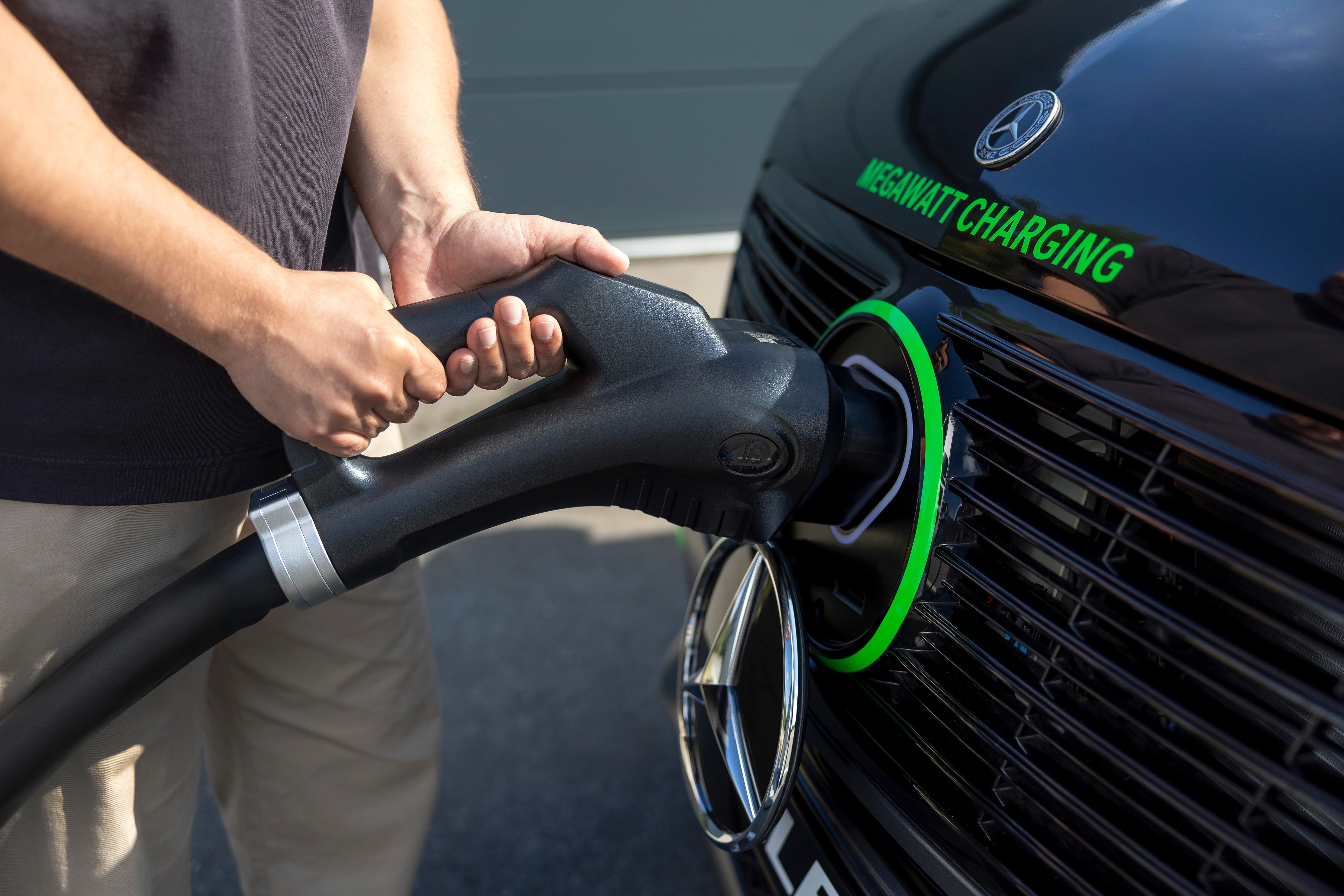
Charging performance and practical implications
As a testbed, the numbers are objective. With CCS, the ELF reaches a peak charging capacity of 900 kW; with MCS, the system operates at megawatts. In the test, 100 kWh was charged in about 10 minutes – a figure that gives an idea of how long a charging stop for larger batteries could be as short as a stop at a busy gas station.
More importantly, the technology from ELF has been applied directly to the Mercedes-Benz Concept AMG GT XX: the high-performance electric car recorded a peak charging power of 1,041 kW in testing, enough to travel around 400 km after 5 minutes of charging. Although the figures are under controlled conditions, they clearly outline the technical ceiling that Mercedes-Benz is aiming for.

| Category | Parameters/Status (as tested) |
|---|---|
| Foundation | Developed from Mercedes-Benz V-Class |
| DC charging standard | MCS (megawatt level), CCS up to 900 kW |
| Maximum current through CCS | 1,000 A (Alpitronic cooperation) |
| Charging time 100 kWh | About 10 minutes |
| Commercial applications | Concept AMG GT XX peaks at 1,041 kW, ~400 km after 5 minutes of charging |
| Wireless charging | 11 kW AC induction |
| Two-way charging | V2H/V2G/V2L; 70–100 kWh battery provides 2–4 days of power |
| Automation | Robot supports fast charging connection |
Safety and assistive technology
In addition to charging speed, ELF focuses on energy sustainability and flexibility. Bidirectional charging allows the vehicle to send electricity back to the home (V2H), the grid (V2G), and devices (V2L). According to Mercedes-Benz, a 70–100 kWh battery pack can handle the electricity needs of a home for 2–4 days, depending on usage conditions.
In terms of convenience, ELF is testing 11 kW (AC) inductive wireless charging – equivalent to a home wallbox – aiming for a “park and charge” experience for personal vehicles and fleets. In parallel, a fast charging connection support robot helps automate the process at high capacity, reducing the risk of manual operations and preparing for an unmanned operation scenario when infrastructure allows.
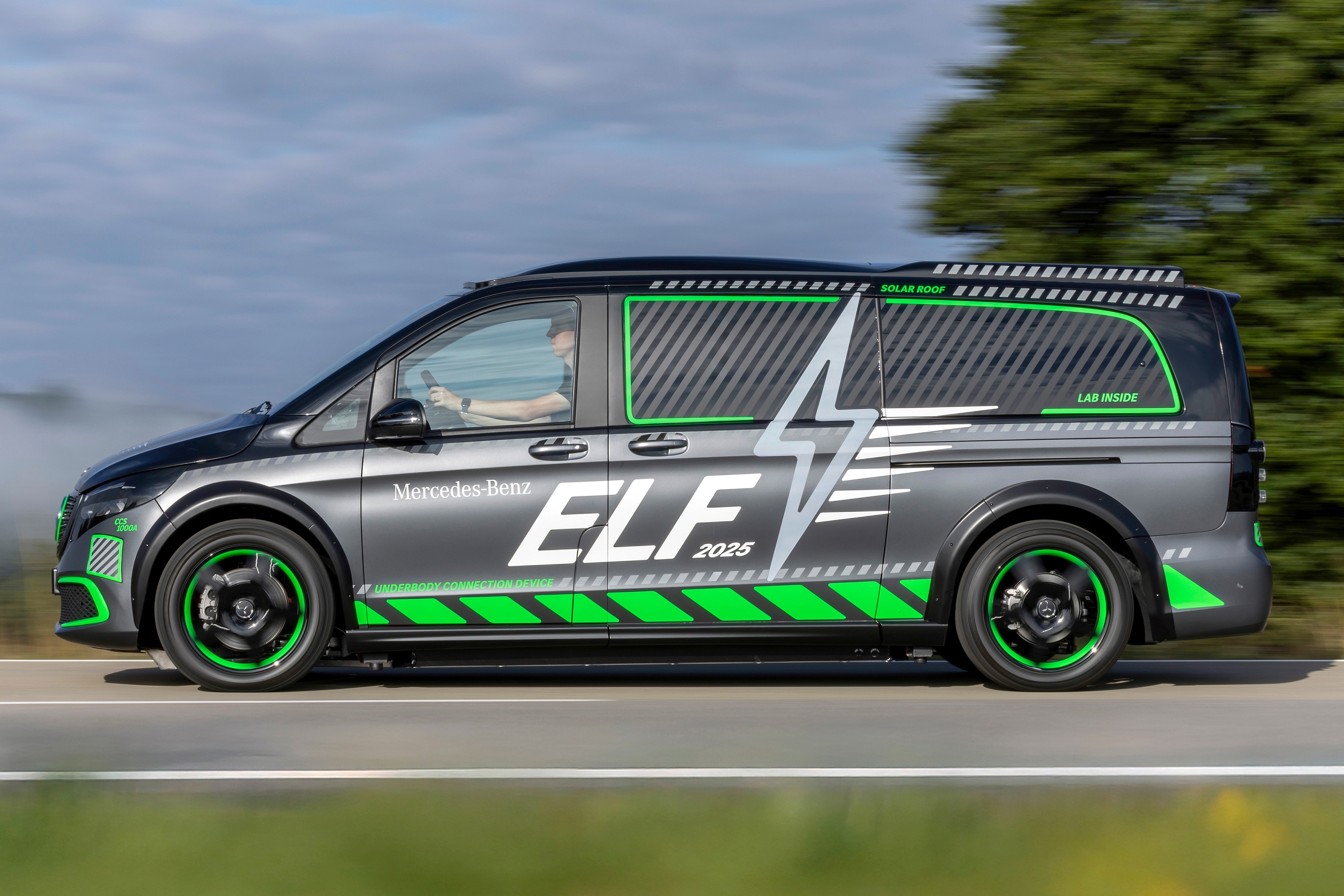
Technologies tested through ELF will be integrated into the Mercedes-Benz Charging Network, aiming to provide a fast, stable and convenient charging experience, closer to the traditional “gas filling” feeling.
Positioning and value delivered
ELF has no commercial version or price. It is a technical platform for Mercedes-Benz to shorten the time to market for new charging technologies and synchronize them with the infrastructure. The ultimate benefit for users: shorter charging stops, less manipulation, and a more flexible electric ecosystem.
From an industry perspective, converging charging standards, increasing current thresholds, and automating connectivity are key to scaling EVs. The ELF sets technical milestones and a realistic roadmap for implementation toward these goals.
Quick Conclusion
- Advantages: Megawatt-level MCS platform and 900 kW CCS; current transmission up to 1,000 A; 11 kW wireless charging; V2H/V2G/V2L bidirectional charging; charging robots; transition to Concept AMG GT XX (1,041 kW).
- Limitations: Not a commercial product; results depend on test conditions and infrastructure; wide applicability requires standardization.
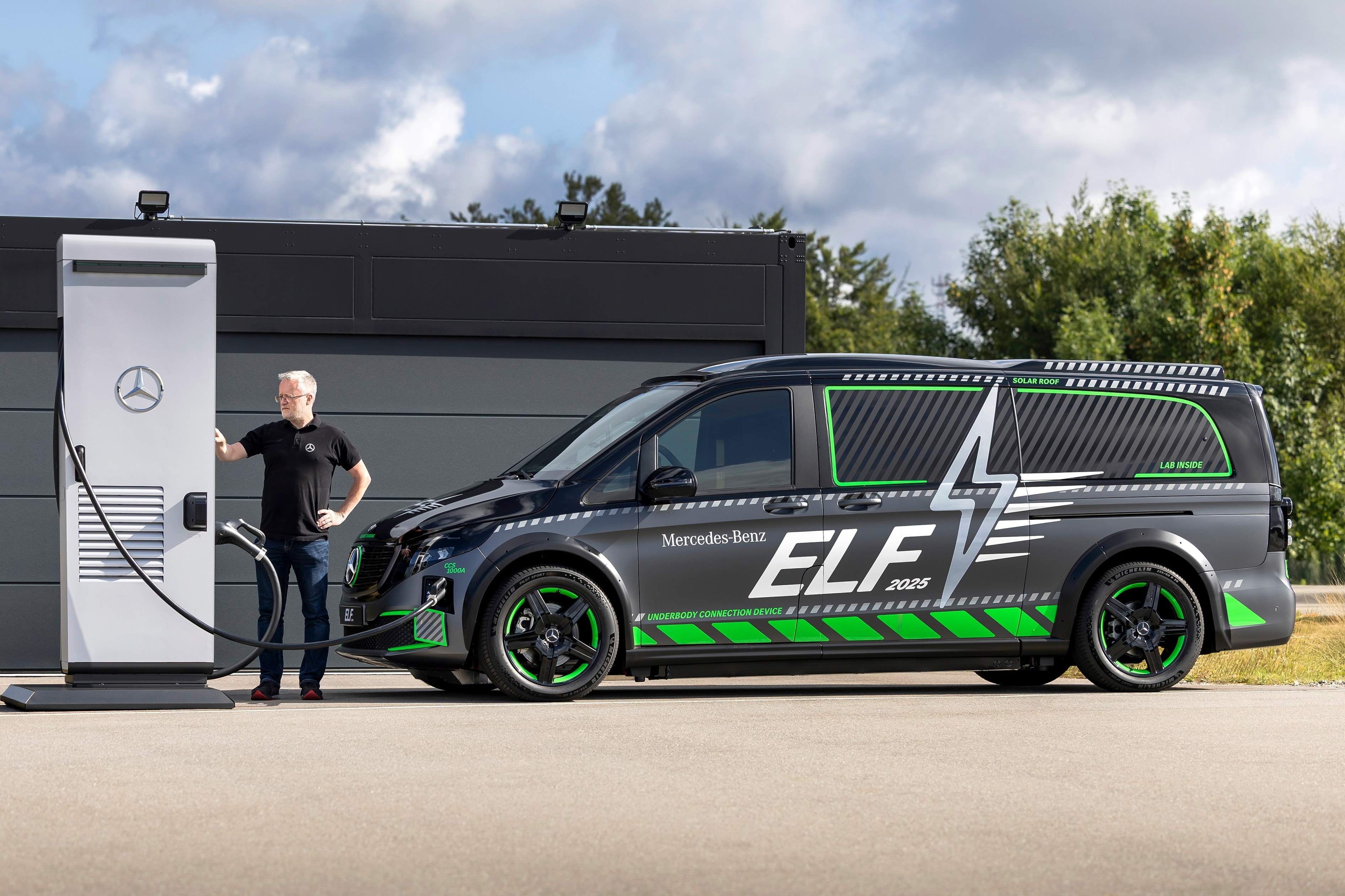
Source: https://baonghean.vn/mercedes-benz-elf-ban-thu-nghiem-nen-tang-sac-megawatt-10308222.html







![[Photo] Closing ceremony of the 18th Congress of Hanoi Party Committee](https://vphoto.vietnam.vn/thumb/1200x675/vietnam/resource/IMAGE/2025/10/17/1760704850107_ndo_br_1-jpg.webp)


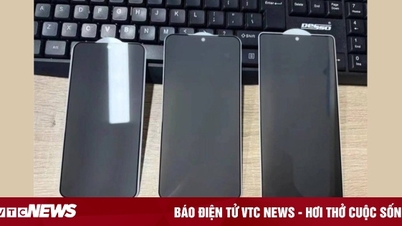

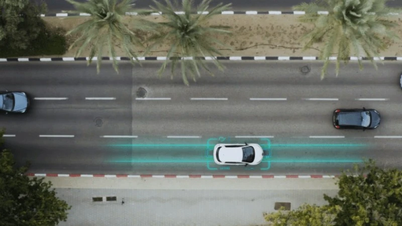

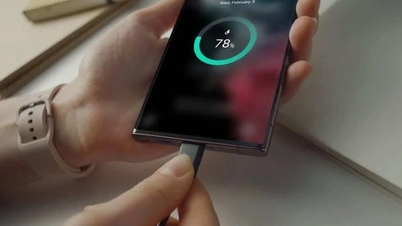

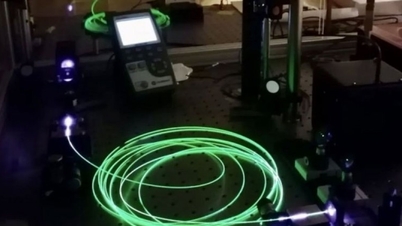

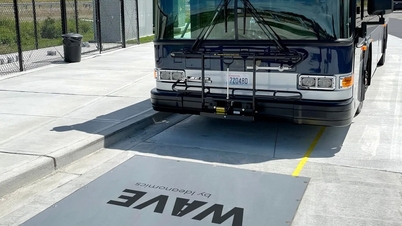

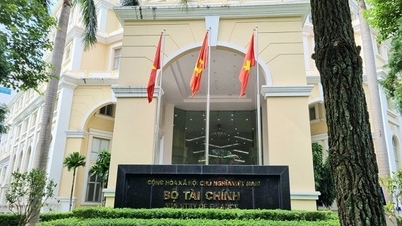

















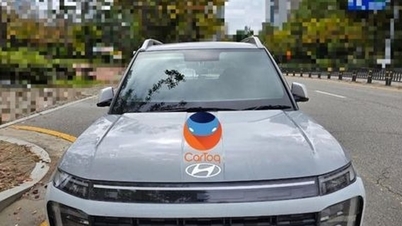
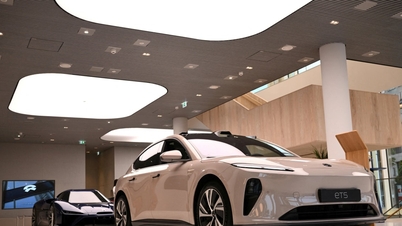
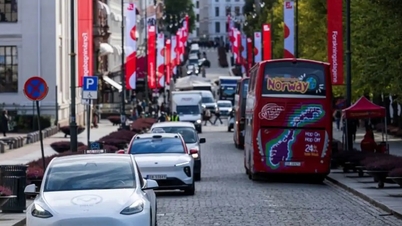
![[Photo] Nhan Dan Newspaper launches “Fatherland in the Heart: The Concert Film”](https://vphoto.vietnam.vn/thumb/1200x675/vietnam/resource/IMAGE/2025/10/16/1760622132545_thiet-ke-chua-co-ten-36-png.webp)



















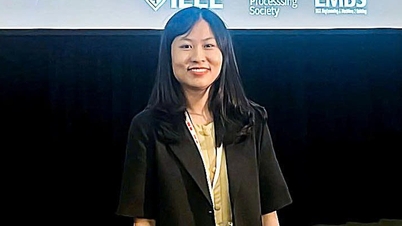









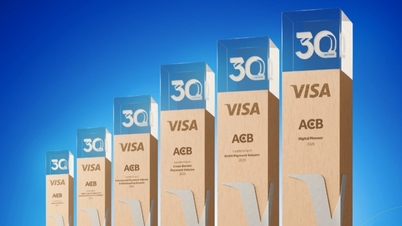






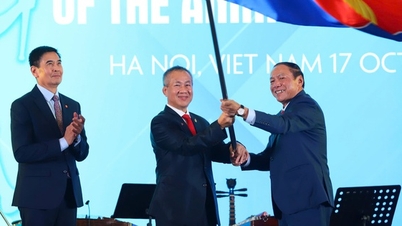








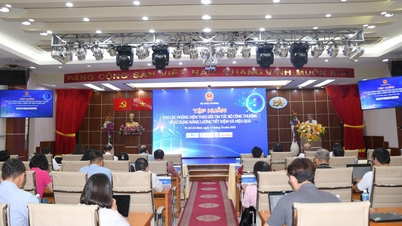



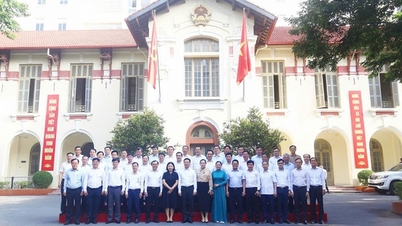
























Comment (0)